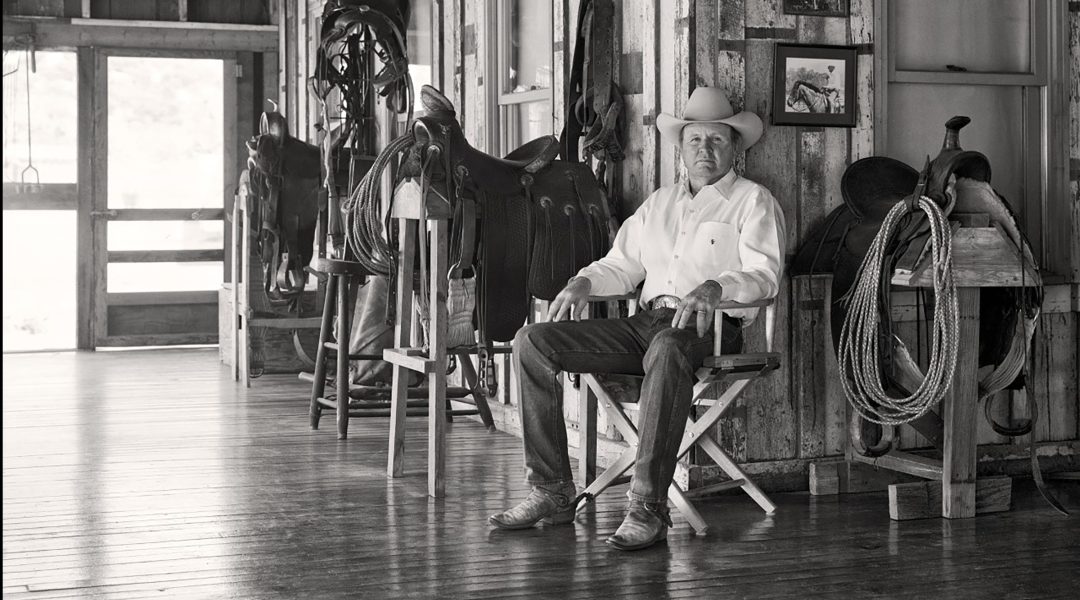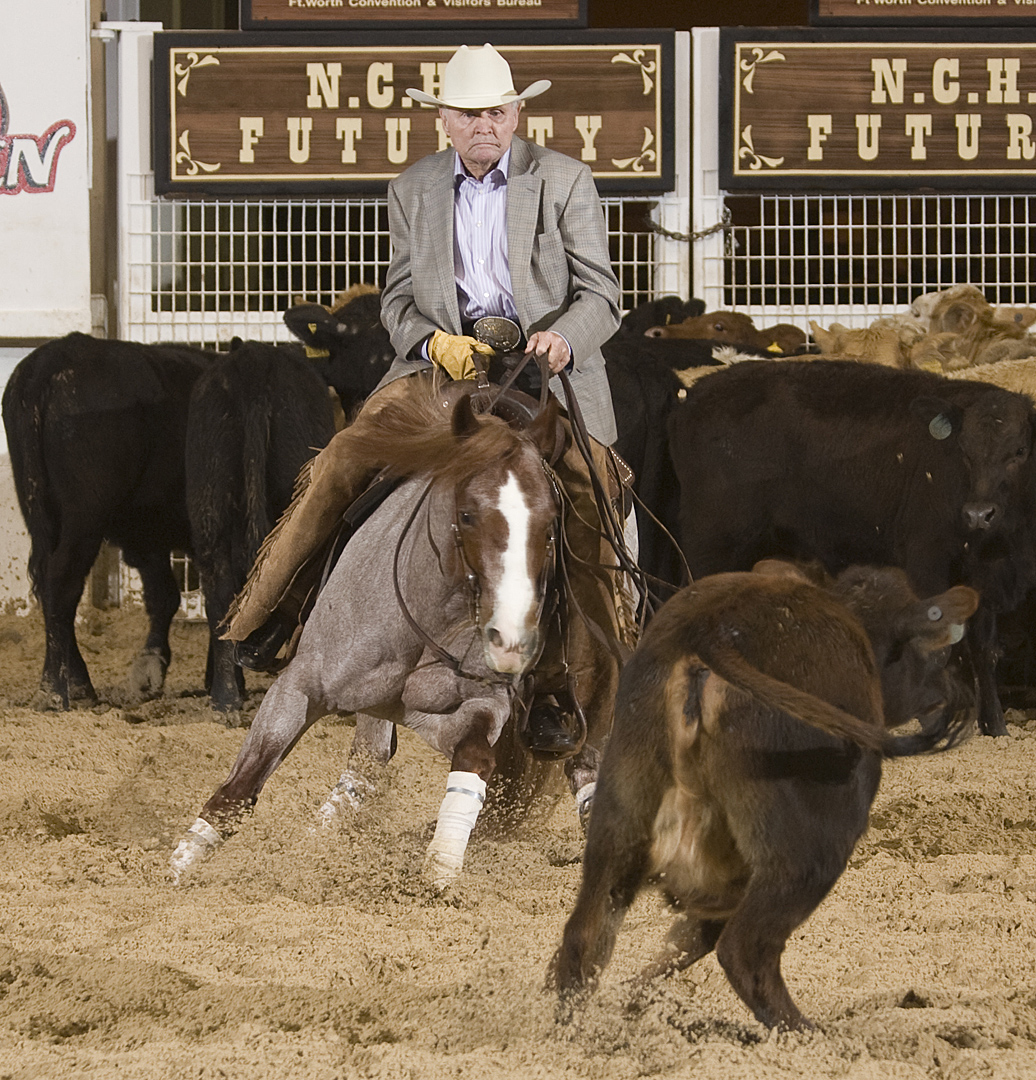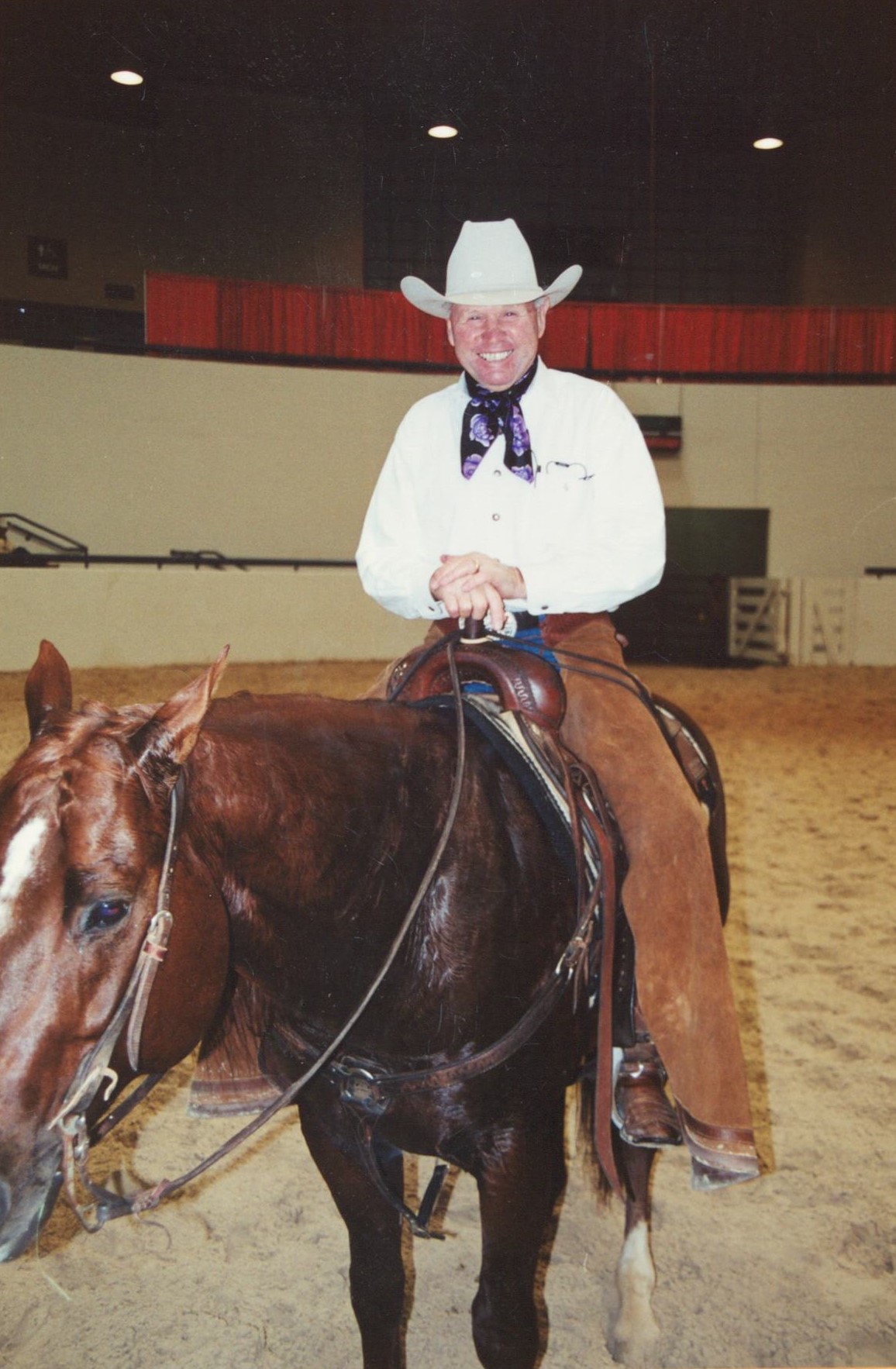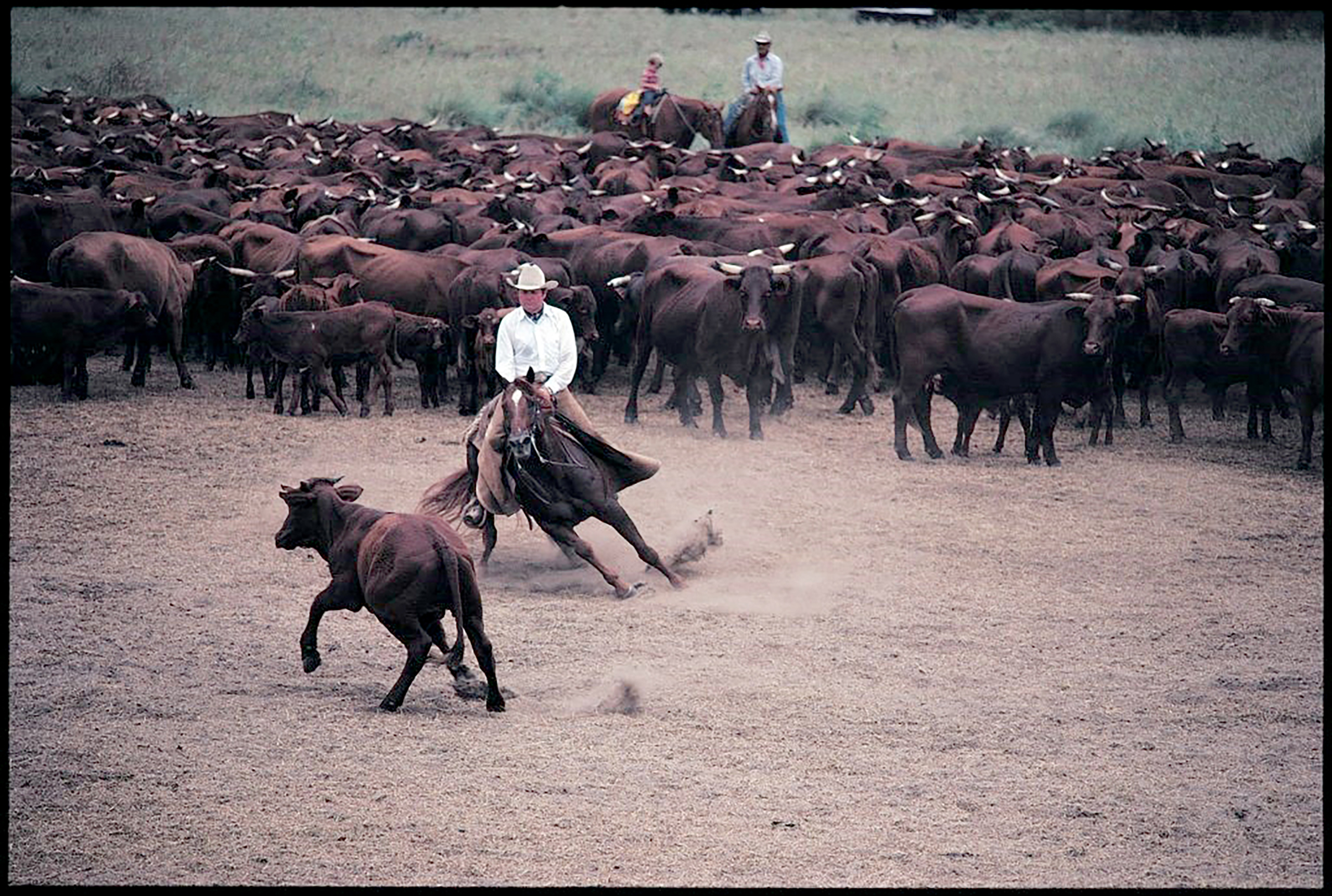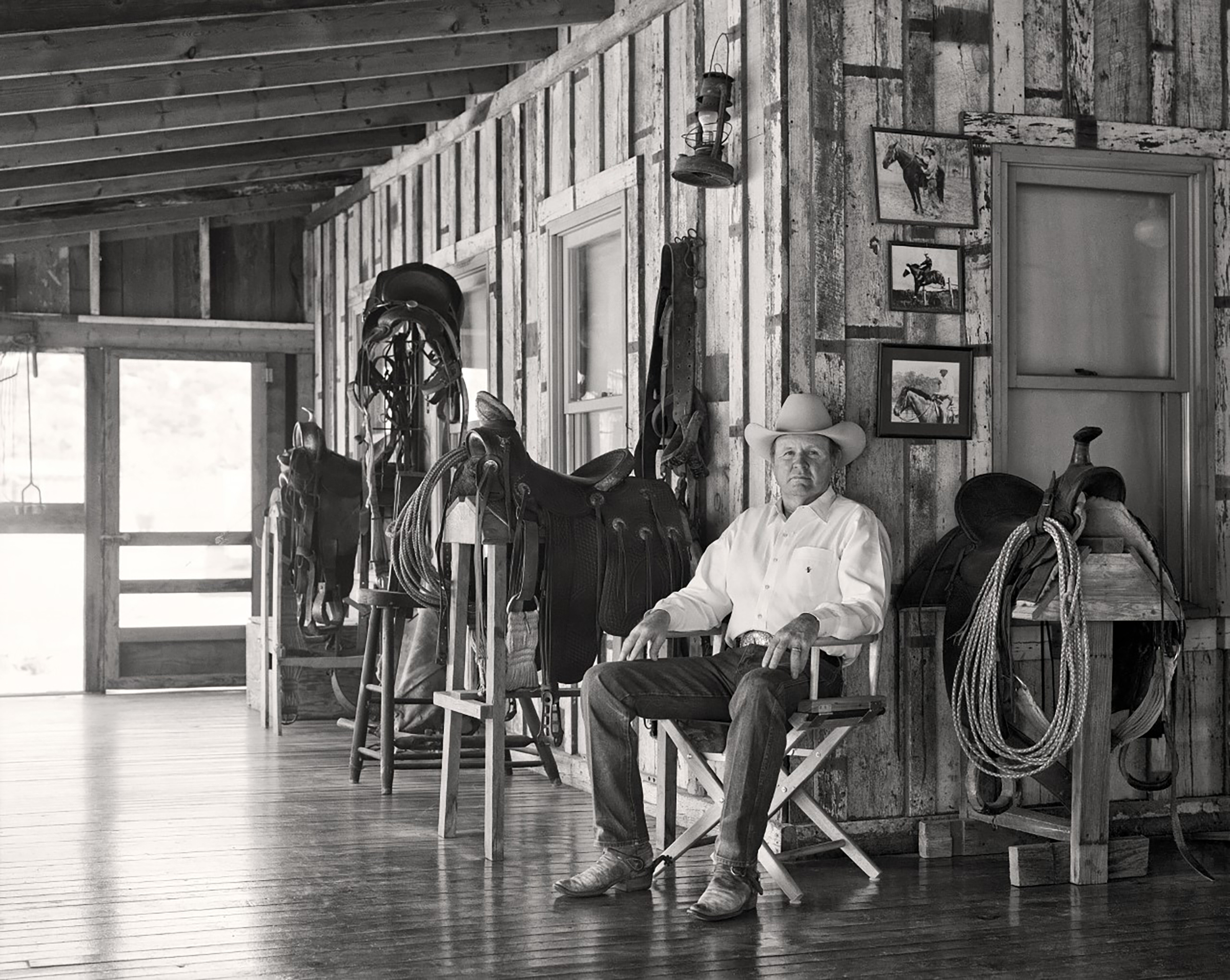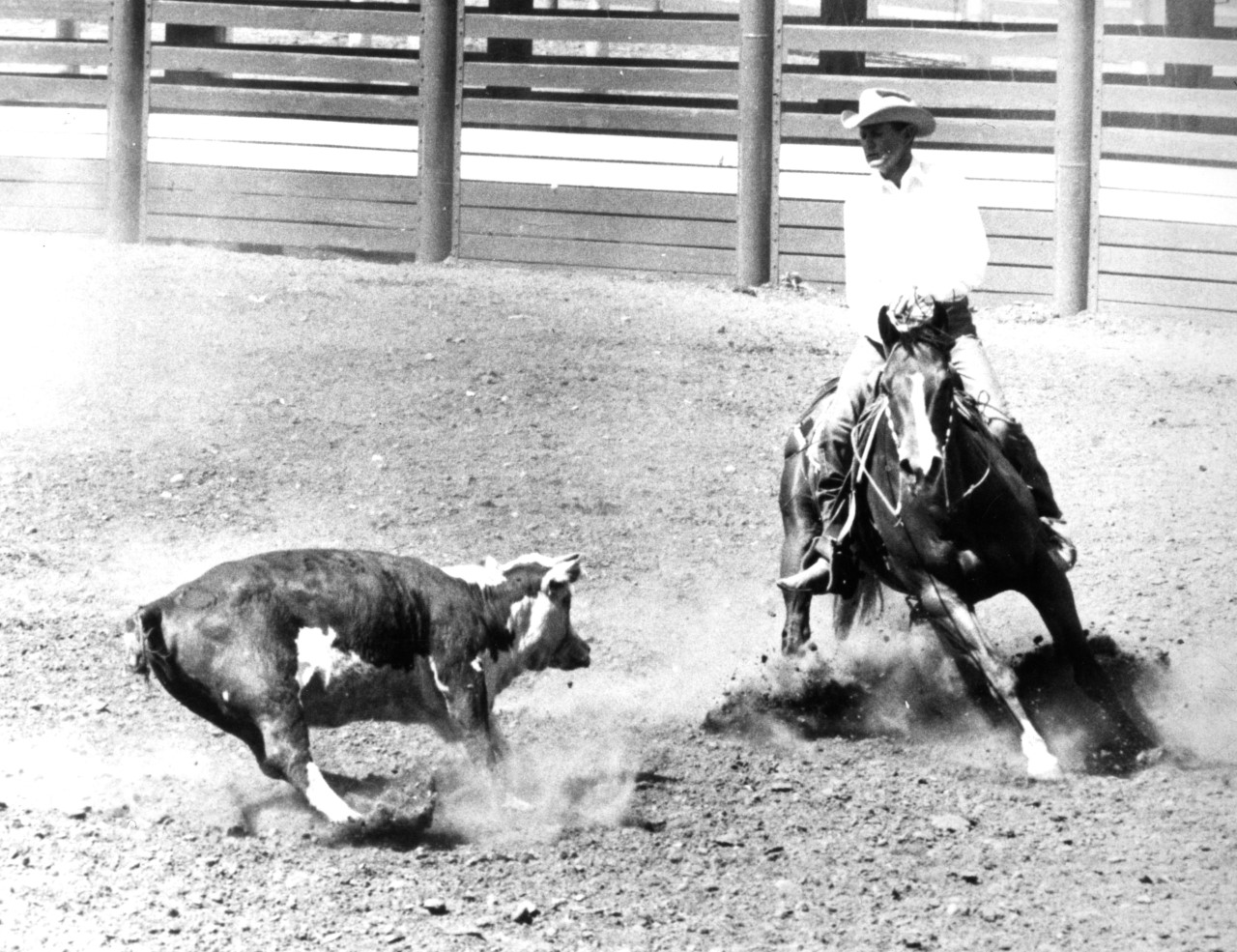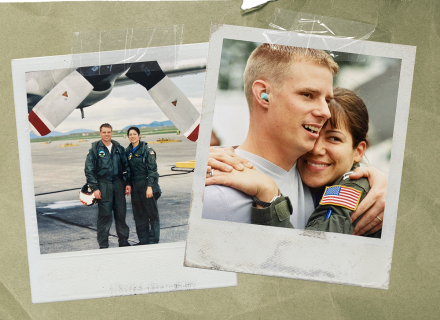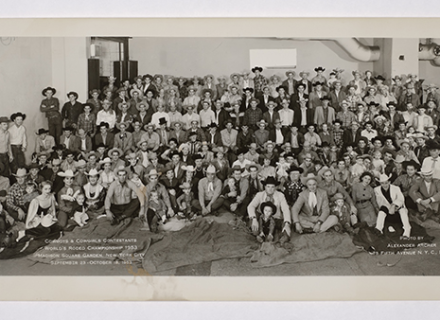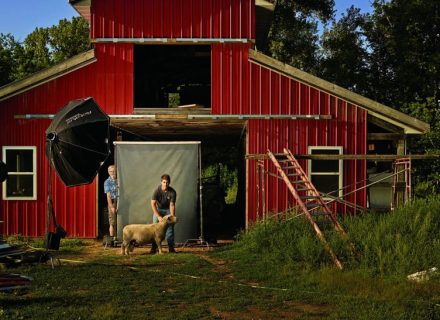When legendary horseman Buster Welch died on June 12, 2022, the entire Western industry mourned the loss, maybe no more so than in cutting-horse circles.
The line has become part of Yellowstone lore: "there are three Gods in Texas," a ranch hand says on the TV show. "The Almighty himself, Buster Welch, and George Strait. You just met one of them."
You know the Almighty, and you know George Strait. And if you really know horses, you almost certainly know Buster Welch, who made a cameo appearance on Yellowstone in Episode 5 of Season 4. Jimmy had been kicked off the Yellowstone Ranch and sent to the famous 6666 Ranch in Texas to learn the cowboy ropes right. Near the end of the episode, he wakes up from a nap to a conversation between senior ranch hand Ross, played by Barry Corbin, and an old cowboy, played by Buster Welch as himself.
When Buster Welch died on June 12, 2022, the entire Western industry mourned the loss, maybe no more so than in cutting-horse circles. His accomplishments in that world — as a rider, a trainer, and an inductee into many a hall of fame — are just one indication of his importance and legacy.
Why will Buster Welch forever be regarded as a god in Texas and far beyond? His great-nephew, producer Bob Welch, shared with C&I the obituary he wrote to celebrate the life of the legend and the man. With his permission, we share it here.
"Fay Owen 'Buster' Welch passed away peacefully at home in Abilene, Texas, on Sunday, June 12. He was born 94 years prior in Sterling County, Texas, the last of eight children born to Charles Owen Welch and Fay Locus Welch.
"Within a month of his birth, his mother died. The children were dispersed among relatives and Buster was raised by his grandparents, Bud and Sarah Welch, until his father remarried. From his earliest days, he drew inspiration from horsemen and ranchers. At the age of 13, he ran away from home and began his long and influential life among cowboys, ranchers and horsemen. Before he turned 18, he worked for the Proctor brothers in Midland, the Long X Ranch in Jeff Davis County, and the famed Four Sixes in Guthrie.
"His intense passion was for the work that called on a good horse. Through ranching was his life's goal and life's work, it could not contain him. By the time he was 26, he became a world champion cutting horse trainer, riding Marion's Girl to the title. By the age of 32, he helped create the National Cutting Horse Associations' pre-eminent event, the Futurity. Before his career finished, he would win the event a record five times.
"Buster developed styles of saddles and tack that changed horse training and showing and remain in use by most of today's competitors. More than that, he developed a reputation as one focused on the greater good of the sport. Buster was generous in advice and assistance to the very people striving against him in the arena. He brought a level of class and dignity to cutting that remains a hallmark of the sport today.
"In 1974 he signed on with the fabled King Ranch. Riding Mr. San Peppy under their banner, he won the NCHA World Championship two more times. A son of Mr. San Peppy, Peppy San Badger, more commonly known as "Little Peppy," became Buster's magnum opus. Together they won the 1977 Futurity. Little Peppy went on to become one of the breed's most influential sires.
"Though possessing only an eighth-grade education, Buster was a voracious reader and lifelong learner. His unadulterated passion for his lifestyle, incredible grasp of the history of his people and his land and his authenticity and ability in every setting attracted people of all stripes to his sphere. World business leaders, heads of states, prize-winning authors and the jet set of Hollywood were drawn to his easy charm and prepossessing charisma. Working cowboys and horse trainers would flock to his ranch to hang on his every word for insights into his otherworldly abilities with horses and cattle. Vast and varied are the people whom he called friends.
"His accomplishments, connections, and personality contributed to his status as one of the pre-eminent figures in Western American culture. He was inducted into the National Cutting Horse Association Hall of Fame, Texas Cowboy Hall of Fame, the American Quarter Horse Association Hall of Fame, won the Foy Proctor Memorial Cowman's Award, the Golden Spur Award, the Western Horseman Award, the Charles Goodnight Award and a host of other awards and honors too numerous to list here.
"Buster, furthermore, was dedicated to his family. He hosted Welch family reunions at his ranch and in his later years cherished visits from a vast collection of relatives. In the 94 years he suffered much tragedy, yet he never withdrew in sadness. He continued to engage with his family and friends and manage his business ventures until his death. He stayed horseback until the end ..."
"Though his interests were wide-ranging, he saw everything through the lens of horses and ranching. One of his favorite quotes came from Martha Washington, who once said, 'The greater part of our happiness or misery depends on our dispositions and not our circumstances.' Buster strove for a curious, hardworking, and cheerful disposition.
"He leaves a legacy of family who loved him, transcendent horsemanship, and the determination to excel in any endeavor to which he put his active mind and ample enthusiasm."
One Last Cutting Conversation With Buster Welch
Shortly before his death, C&I talked with the legendary horseman about the sport he loved so much.
C&I: The horse and cow relationship is incredibly important to you.
Buster Welch: It's a pleasure to work cattle on a good cutting horse. It is the biggest pleasure that you can enjoy, to have that horse working with you and outsmarting that cow with you, anticipating a cow's movement. You naturally identify more with that horse than you would with an ordinary horse. That's not work, it's fun. Every horse I ever rode had good conformation, and they were real smart, and they liked to work a cow. They enjoyed a contest with a cow, and they liked to do a good job.
C&I: How has your horse-rider relationship changed during the decades?
Welch: A horse could move so much faster if you were just balanced — balanced in his turn, and not throwing your weight around. Balance opens up more doors when experiencing how a horse likes to move. I have learned to appreciate how much a horse likes to have his head and neck free to balance with. That's his balance: his neck and head. I learned that different horses want their head and neck turned a different way, and I got to appreciate that through the years. Perhaps this balance lets a horse move faster and better.
C&I: What makes a perfect cutting horse?
Welch: There's three things you can't teach a man or a horse, and one of them is the feel, and the other one is his timing, and the other one is the rhythm. If they've got that feel, that timing, and that rhythm, you can just see them and the horse working together. That's something you can't teach that horse — you've got to let him learn it. And you can help him learn it by just a little correction here and there. If he's a natural cow horse and wants to work a cow, he'll appreciate you helping him a little.
C&I: What kind of a horse trainer have you strived to be, and how is that reflected in the horses and cowboys and cowgirls you've trained?
Welch: A cowboy needs to be authentic if he's going to be respected by cowboys who are working with him. Men working for you want ot know that what you tell them is authentic, and what you want to do is authentic, and that would make me feel really good.






